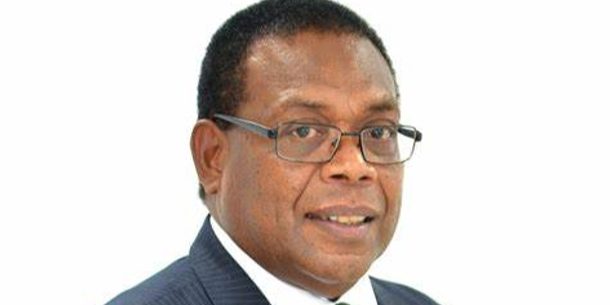Proper procedures and processes urged for SINU’s PhD programs
A FORMER Prime Minister, and long time Education Ministry Permanent Secretary and educator has raised concerns about the absence of proper procedures and processes for the establishment, approval and assessing of PhD programs at the Solomon Islands National University (SINU).
This followed the recent award of the university’s first doctoral degree.
Dr Derek Sikua also a former Leader of Opposition, in a 3rd September 2024 letter to the Chair of SINU Council, Dr Morgan Wairiu, expressed concerns that, “SINU does not have strong and appropriate processes and procedures to apply for, approve, establish and assess academic programs, especially for a doctoral degree.”
He said, “the absence and/or weakness of such administrative and regulatory procedures raise questions about how SINU approves a PhD program, its administration, the assessment processes and hence the credibility of the degree.”
Dr Sikua cautioned, “this could, in the long-term, raise questions about the academic rigor and quality of SINU’s PhD programs and the degree conferred,” adding that, “This could adversely affect the university’s reputation.”
He stressed his intention was not to discredit the recent PhD graduate, whom he said, “enrolled in good faith and should be proud of her achievements” but urged the SINU management to ensure academic programs are not offered and awarded haphazardly or on ad-hoc basis, especially for a doctoral degree, the highest accolade in academia.
Dr Sikua raised four questions which he said, the SINU senior management needs to address, if the university’s PhD degrees are to be credible:
- Are there processes and procedures for faculties to apply for and be permitted to establish a PhD program? What are the details of these procedures? Where can this information be found?
- What body in SINU assesses and determines whether there is a need for a PhD program, whether the application procedures have been followed, and what are the criteria for determining these?
- Was a PhD program in Environmental Science formally established at SINU? Did it follow procedures and processes and was it approved by the SINU Senate, Council and other appropriate authorities? When did this happen and where are the records? Are there records of the Faculty of Agriculture, Forestry and Fisheries (FAFF) applying for and receiving approval to establish a PhD program? If not, how could the university award a doctoral degree in environmental science?
- Who were on the candidate’s thesis committee? Were they qualified to serve on the committee? The two core members of the graduate’s thesis committee include an academic trained in anthropology and political science and another whose background is in international relations and peace and conflict studies with some work on environmental issues. Both have no qualification in environmental science. While they might have provided valuable advice on an interdisciplinary examination of the environment, it raises questions on whether they were qualified to be the core supervisors for a PhD degree in environmental sciences. While a professor from the University of Queensland provided “external support”, the core supervisors had no qualification in the discipline in which the PhD degree was conferred. It also raises questions about whether SINU has mechanisms and guidelines for engaging outside professors to serve on PhD committees.
Dr Sikua said, while it is good to see SINU offer and award higher degrees, it is important to ensure that proper procedures and regulatory mechanisms are put in place to ensure academic rigour, high standards are established and maintained and the university’s integrity is protected.
Dr Sikua also stressed that there must be proper processes, procedures and assessment mechanisms for promotions, especially in awarding professorial titles.
He said these should, amongst other things, focus on an academic’s contributions to teaching, research and publications and community service.
Dr Sikua added that, “one should not be awarded a professor title simply because the VC or other higher management personnel feel the desire to do so.”
Additionally, he expressed concern that “SINU has been signing Memorandums of Understanding (MoU) with international and national partners without first strengthening its internal capacity.
“Partnership with other stakeholders is important and could potentially be valuable. However, the university must first strengthen itself internally, otherwise it will not be able to implement the MoUs.”
Dr Sikua said “SINU is a valuable institution of higher education in Solomon Islands. However, it’s value could be adversely affected by careless management that is more concerned about the optics of success, rather than substance and quality.”
He also asked why the SINU Council has not met in a while, raising questions about the governance of the university.
Dr Sikua expressed his appreciation to the SINU Council Chair, members of the Council, the Chancellor, Vice-Chancellor, members of the university’s senior management and academic, administrative and support staff for their work in providing tertiary education to Solomon Islanders.
He also acknowledged and congratulated SINU for the first doctoral degree graduate.
Dr Sikua said he offered his views “in good faith, as someone who appreciates SINU’s important role in our country, and simultaneously concerned about setting rigorous and quality academic standards and maintaining the university’s integrity.”
He said he hopes the SINU management will take his concerns in good faith and respond constructively.
Dr Sikua’s letter to SINU Council Chair was copied to the Vice-Chancellor Dr Transform Aqorau, Pro Vice-Chancellor Dr Eric Katovai, Dean of the Faculty of Agriculture, Forestry and Fisheries Dr Vaeno Wayne Vigulu and the President of the Lecturers Association of SINU (LASINU) Reverend Dr Ben Wate.









